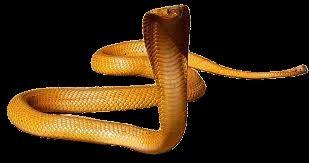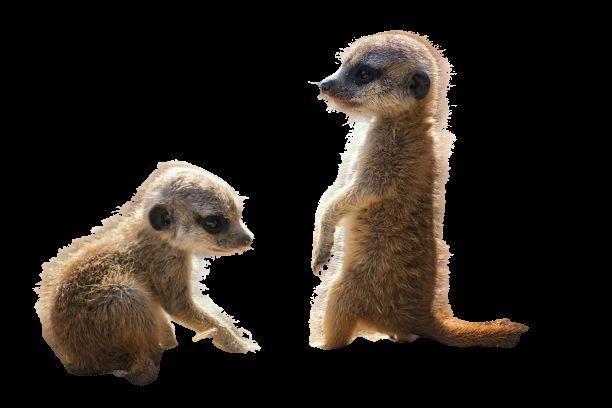ADVENTURESOF TIMONANDSOPHIE
A“THELIONKING”SPIN-OFFBYBAHTINURYILMAZ






Sophie was a meerkat who treasured gazing at the sunset that fell upon the vast and mysterious lands in front of her. Yet, she knew she could never have the chance to go out on an adventure and experience the hidden beauties of that land herself. in a cage- until the day everything changed.




It was a day like every other, and Sophie was having her afternoon nap. Suddenly, she heard a "pshht." When she opened her eyes, there was a guy but I want you to listen to me carefully."


"As you can see, I am just like you; it is because you are one of us, the meerkats of the Kalahari Desert of Africa or Suricatasuricattaas humans call it. You were kidnapped by a human when my dear mom was babysitting you. Oh, that cruel creature! I would teach him a lesson, but we don't have much time!" said the new guy furiously.



"It is because you were born blind and deaf," replied Timon, hoping to calm the little pup down. " I came here to rescue you and take you back to our mob- but only if you wish to, of families. In fact, I once saved a lion, who became the king of these vast lands. Well, I am seeing a recurring theme here," bragged Timon. Seeing the puzzled look on Sophie's face, he finished quickly. "Anyways, we need to leave now. After all, you are the










"This is our habitat, the place we live in. We inhabit the southern parts of Africa, including southern Botswana, western and southern Namibia, and northern and western South Africa. As I told you before, we mainly live in the Kalahari Desert, but I also know some fellows living in the Namibia Desert."




"Our habitats are arid with low rainfall and covered with short grasses, scrubs, and rocky areas. So, we prefer savannas with open plains since it is easier to detect our predators," explained Timon.


At that moment, an entrance caught Sophie's eyes.
"This is one of the entrances to our burrows," stated Timon. "Burrows are these long underground tunnels, which we use to hide from our predators, escape the heat, store food, look after pups like yourself, store food, and sleep."

"We dig them ourselves with our sharp foreclaws. Amazingly, they are cool during the day and warm at night, so we don't need to spend more energy to regulate our internal temperature."
"Don't you get dirt in your eyes or ears while digging?" asked Sophie.
"Don't worry; a special membrane covers our eyes, and our ears close to prevent dirt from going in, " replied Timon.
"So, do we all live here?" asked Sophie.
"Yes, but sometimes we share it with other species, like yellow mongooses or cape ground squirrels. In fact, this is one of our mutualistic symbiotic relationships," explained Timon.

shocking Sophie. "Hey, look what I am going to show you; wait for a second here," he continued and quickly went in and took a paper from the burrow.

"I stole this from a group of zoologists conducting research on us.








"This second graph- that's what they called that- apparently displays our population growth rate."


"Why is it going down?" questioned Sophie.
"Well, it is because our population is decreasing at a 25% rate. I





 Figure 3. Survivorship Curve of the Meerkat Population
The Kalahari Meerkat Project
Figure 3. Survivorship Curve of the Meerkat Population
The Kalahari Meerkat Project
The Kalahari Meerkat Project












"What about the third graph?" said Sophie instead, looking as curious as ever.
"It is a survivorship curve, and ours is a Type 3 survivorship curve, which means pups are more likely to die than the adult meerkats. It is usually because you guys are more susceptible to diseases, predation, and sometimes intergroup aggressions," he added. This time, the little pup was a bit shaken, but her brave expression came back shortly after.


"Well, I am going to outlive you, old man; just watch and see!" she exclaimed. Timon was surprised but proud at the same time.

 Figure 1. Meerkat Mob Territories
Figure 2. Growth Rate of the Meerkat Population
Figure 3. Survivorship Curve of the Meerkat Population
Figure 1. Meerkat Mob Territories
Figure 2. Growth Rate of the Meerkat Population
Figure 3. Survivorship Curve of the Meerkat Population
"Oh, do you see them?" said Timon, looking directly at an area covered with bushes.




"See what?" asked Sophie, and then it hit her. It was a group of meerkats looking at them with curious eyes. "Wow, it was really hard to notice them," Sophie added. camouflage is one of our defense mechanisms. The colour of our furs perfectly matches with the arid and sandy lands, helping us hide better from our predators," described Timon.


"It is so cool!" cried Sophie and asked Timon if there were other defense mechanisms they used.

"Of course, we also employ many behavioural defense ," began explaining Timon.

forage, there is usually one meerkat , watching out for aerial predators from a high spot thanks to our excellent vision. If that meerkat detects a threat, he or she warns us with a special alarm call, which is different for when there is a predator coming from air or land," continued Timon, remembering all his traumatic but rewarding memories.


"We are really fast; thus, even though we usually retreat to our burrows to hide from our predators and kick up dust to obstruct their sight, we also engage in








"Time to meet the family," said Timon. The tears of happiness burnt Sophie's eyes when he saw a group of meerkats waiting for her. For the first time ever, she felt like she belonged somewhere.




Then, a female meerkat, larger than anyone in the group, embraced her, and, just like that, Sophie experienced the warmth of a mother. Being lost in the moment, all she could hear was the murmurs of her mother thanking Timon for bringing her little daughter back to her.

That night, Sophie slept with her mother and siblings in a burrow. Timon had told her she was going to start her training tomorrow. She couldn't keep herself from dreaming about her next day.




PREDATORS

The next day came quickly, and Sophie started school. Her teacher, Mr. Sergei, introduced her to the others and began showing their predators from yet another paper they stole from humans. "You should, all the time, watch out for Birds of Prey, such as martial eagles, lanner falcons, bateleurs, and pale chanting-goshawks, as well as cape cobras, black-backed jackals, and spotted hyenas," said Mr. Sergei."Try to stay close to your adult fellows and retreat to your burrows," he added.




"Oh, Uncle Timon told me about the spotted hyenas," exclaimed Sophie. "Apparently, one of them is not really smart, so we might be able to deceive him." Laughter filled the burrow.





 Martial Eagle Bateleurs Pale Chanting-Goshawk
Cape Cobra Black-backed Jackal
Spotted Hyena
Martial Eagle Bateleurs Pale Chanting-Goshawk
Cape Cobra Black-backed Jackal
Spotted Hyena
"Now, we will continue with our prey to finish our topic predation," said Mr. Sergei as he flipped to another page.



"As meerkats, we are primarily insectivorous since we prefer to feed on beetles and lepidopterans. In fact, we get our daily intake of water from them as well. We prey on arthropods, small amphibians, birds, and reptiles. Occasionally, we also eat plant parts, such as roots, seeds, and berries too," he added.

"Today, all of you will go on a scorpion hunt with your helper adults," Mr. Sergei stated.






"As you can see guys, we are so important to our ecosystem." Mr. Sergei continued, trying to attract his students' attention. The moment he said, "If we were to go extinct," a collective chanting of "Huugh" echoed in the classroom. Yet,







"The balance in our ecosystem would be disrupted. Also, the interspecific competition between our predators would increase, which would decrease their population."

"Since we wouldn't be able to disperse seeds, we wouldn't be able to promote plant diversity. Lastly, if you guys remember, we share our burrows with our fellow friends, such as yellow mongooses and cape ground squirrels, and our warning calls help many other animals escape from predators. Thus, our extinction would threaten those animals as well," stated Mr. Sergei, concluding that day's class.





After the class, Sophie went to meet her supervisor. "Oh hey, I will be your helper, Sophie," said Timon, and Sophie was thrilled to learn he could spend some more time with her Uncle Timon.
"Today, we will catch some scorpions. Normally, we start giving pups dead or partial prey for practice, but you are about to become a juvenile, so I will just remove the stinger for you," Uncle Timon explained.

"What do you mean by I will soon be a juvenile, Uncle Timon?" asked Sophie.



"Well, it's one of the stages of our lifecycle. We start our lives as pups, born blind, deaf, and hairless, even though our eyes and ears start opening in around two weeks. Our moms provide us with milk before the foraging starts. While we are dependent on the adults, the caregivers, usually subordinate females, take care of us by protecting, feeding, and grooming us. My mom was your caregiver; that's why she was horrified when you were kidnapped. In terms of fecundity and birth rate, female meerkats can have 1-7 pups per pregnancy, and they give birth to around 4 litters or 16 pups a year; therefore, you have a lot of siblings actually."
"Around three weeks, pups leave their burrows and start going foraging with their supervisors who teach them how to hunt. Pups can still beg for food through their pup calls, though. Today, we will be progressing in foraging."
"When they reach about 90 days in age, pups become juveniles and obtain nutritional independence. They also start being more active in cooperative group activities, such as sentry duty, independent foraging, and looking after siblings. Since we are social animals, everyone sharing duties and working cooperatively is really important."

"When you are around 180 days old, you become a sub-adult and even more independent and cooperative than before. Some of us start leaving for dispersal to find new territories for themselves and attract mates."

"Lastly, in around one year, meerkats reach reproductive maturity and start reproducing. During this time, competition for dominance is strong since the dominant pair has access to more food resources and reproduction chances. We continue to actively participate in foraging, sentry duty, and looking after the young members of the group until we get old and eventually pass away one day. On average, we have a lifespan of 5-15 years," Timon concluded.



Just then, they saw the scorpion.
"Uncle Timon, we are hunting or fighting against animals like scorpions and snakes; aren't their venoms deadly for us?" asked Sophie.

"Well, compared to small mammals our size and even to humans, we have developed a remarkable resistance to those venoms. Also, after you watch me carefully, you will see that I will bite the scorpion’s tail off to remove the stinger and rub it onto the sand to remove the venom on its exoskeleton," replied Timon. After watching Timon with utmost attention, Sophie successfully demobilized the scorpion, and they had a feast. Yet, suddenly, Sophie heard a warning call and saw a dark bird fly. Following Uncle Timon, she quickly retreated into the closest burrow, leaving the rest of the scorpion behind.


"It was one of the fork-tailed drongos who warn us when a predator is coming. In return, they eat our dropped food. So, it is another mutualistic relationship, like the one we have with yellow mongoose and cape ground squirrels who share burrows with us. Also, yellow

parasitic relationships with certain parasites, such as ticks, tapeworms, or fleas, which can negatively affect our health and reproductive success and cause us to behave differently, disrupting the social balance of our group."



"It is a shame you couldn't eat the rest of the scorpion, though; you need to gain weight," Timon stated.


"What are you going to tell me?" asked Sophie.
"Well, let's first lay down. I don't know why, but I prefer to relax while talking about serious issues. Maybe, it's a habit I got from my warthog friend, Pumba," said Timon. "You have a warthog friend!" exclaimed Sophie.
"Yeah, but it's a topic for another day. Did Mr. Sergei teach and intraspecific competition

"I heard about inter-something in the class today," Sophie
"Interspecific competition is the competition we have with other species, usually for territories and food sources. Even though we frequently interact with other animals like yellow mongooses and cape ground squirrels, we don't





in meerkat groups; the dominant pair holds the highest rank and has access to substantially more food, reproduction, and authority than the others. Usually, the largest and oldest daughter of the dominant female becomes the next dominant female. Yet, there is always competition to take over that title. For example, you and your sisters can participate in eating contests and try to eat more than the other to become larger."

"An eating contest? That sounds fun," said Sophie.
"Yeah, but the dominant female and male usually engage in aggression to establish dominance. The dominant female can evict the subordinate females if she feels threatened, and the stress regarding being excluded from the group really wears down those meerkats,"
"Subordinate females can conspire against the dominant female as well, going as far as to attack her pups, which is seen in dominant females too. Sometimes they disperse, though, trying to find a new




"Are there specific tactics the males use as well?" she asked later, giving in to her curiosity.
"Of course. For instance, my second cousin was obsessed with scent marking to establish dominance. He also took over my older uncle's position by gaining the others' favour. I liked my uncle. Apparently, his son will try his chance with to raise his rank this year."
"I wish it was just these, though. When two meerkat groups come across each other, they might engage in aggressive and lethal fights to establish dominance around the territory. In these fights, many meerkats, especially pups, lose their lives. The winning side, usually the larger group, moves their burrows further away from the centre to prevent future conflict, decrease the competition for food resources, and expand their territories."

"Ow, I hope our group never engages in such a fight, Uncle Timon," stated Sophie in a trembling voice, trying to send the bad thoughts

"Me too," was all Timon could say as he gazed upon the boundless lands before


On their way home,Timon was stopped to attend an urgent meeting of the Council of Meerkats.The dominant female started talking.

"As you guys know, due to seasonal fluctuations in rainfall and increase in temperatures, we are battling a drought.The scarce food resources decrease our growth and survival rates. Most of us are stressed because, as diurnal animals, we prefer to work during the day, yet we also need to escape extreme temperatures. Moreover, many of our male fellows and some females have decided to emigrate.These density-independent factors are posing a threat to our population and increasing the chance of a TB outbreak," explained the dominant female and let the dominant male continue.
"As you have said, due to their high density, they can divide the workload and better feed and protect their pups. Still, they experience a higher competition for food resources within the group and a higher probability to participate in intergroup conflicts.Thus, their survival decreases during non-breeding seasons," indicated Timon.


"However, ladies and gentlemen, these are not the only problems we are facing. I would like to take your attention to the threat caused by humans and climate change. Humans are building their lands and fields on top of our territories and habitats. They are dividing the population of social animals like us. As if it is not enough, some are kidnapping our friends to keep them as pets while some attack them because they see them as pests. As the dominant female has mentioned, climate change increases temperature and rainfall fluctuations even more. We take our water intake from our prey and lose a lot of it while sweating because of high temperatures," he added.

"We need to take these seriously and find a solution!" he concluded.

Just in the middle of Timon's inspiring speech, a meerkat on sentry duty interrupted the meeting in a rush.

"They are back! That old cruel man and his friends came back to steal our pups. Quick, we need everyone on the defense."

Just then, two figures appeared from the shadows. The Superkat and Batkat, the mighty saviours of the meerkat community, were ready to save the day again. All the other adult meerkats followed them as well.

Meanwhile, in the burrows, Sophie took on the role of a real leader and gathered all the pups to take them to the safe place Timon told her about.
From a small hole, they watched Superkat and Batkat defeat the bad guys.
After the attack was over,Timon immediately went to check on Sophie and saw that her mother was just beside her. "Are you okay, Sophie?" he asked. "Yes, I made sure that everyone was safe," Sophie said.

"You did a good job, buddy,"Timon stated. "I liked protecting the pack, UncleTimon. I think I want to become the dominant female when I grow up," Sophie said with sparkles in her eyes.

"I am sure you will be the best dominant female our pack has had,"Timon expressed, and they joined the others who were evaluating the situation and making plans for the next season.



